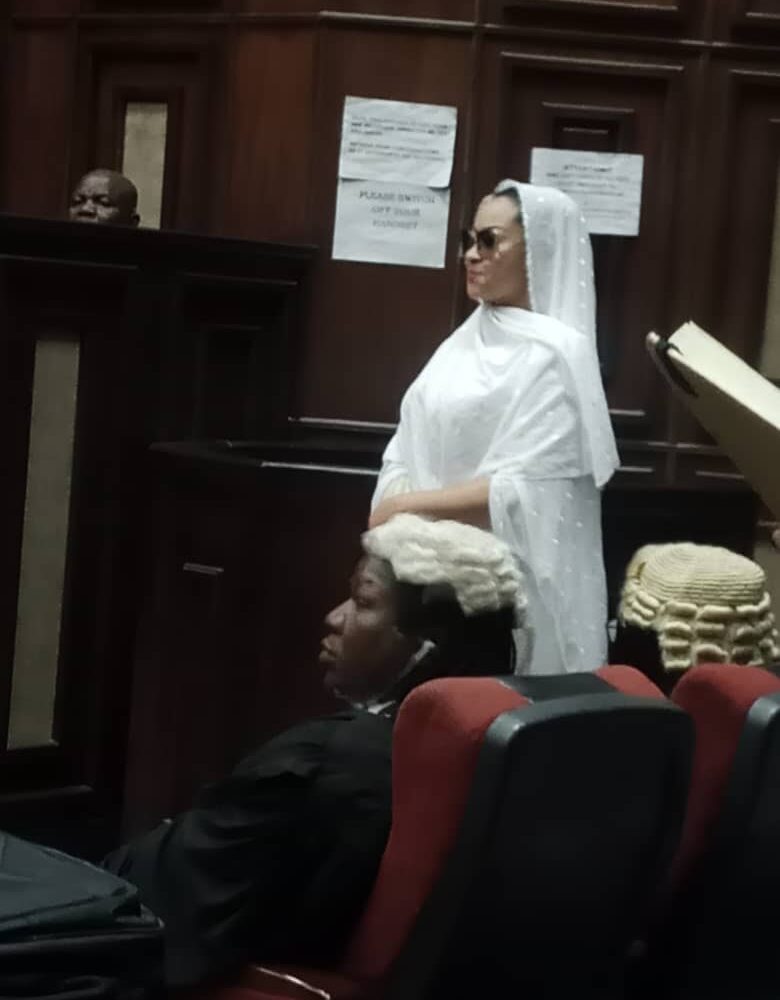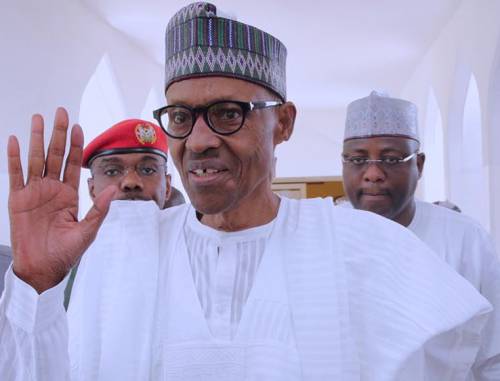The common saying that when a problem is identified, it is half-solved is valid only when it is the identified problem that people conscientiously seek to solve. It becomes a different matter when in the process of solving a clearly identified problem,state actors lose focus and either divert attention to other ancillary matters or begin to imagine that the procedures and processes for attaining a goal and the goal itself are coterminous. Well before independence, the people of Nigeria were fully aware of the heterogeneous nature of their country. Also clear to them was the inclination for a multi-ethnic society to be easily destabilized by innate centrifugal or divisive forces. Unfortunately, the same Nigerians keep failing to downplay divisive forces by embracing the centripetal or unifying forces available to them.
Ethnicity is no barrier to national unity ,by Tonnie Iredia

To continue to bemoan the existence of diverse cultures and multiplicity of ethnic groups in the country is unwise because the problem of Nigeria is not her ethnic diversity but the failure of her leaders to manage the phenomenon. Nigeria has failed to read Jawaharlal Nehru’s book “Discovery of India” which had laid bare the expedience of ensuring harmony and unity amongst different regions and cultures through the instrumentality of the principle of inclusivity.Our people have to constantly abide by relevant legal provisions especially section 14 of the 1999 constitution which provides that at all levels of government – local, state and federal, the composition of government or the conduct of public affairs “shall be carried out in such manner as to recognise the diversity of the people within its area of authority and the need to promote a sense of belonging and loyalty among the peoples of the federation.”
Despite the relevant constitutional provisions, the recommendation of “unity in diversity” by Jawaharlal Nehru is yet to take root in Nigeria. But at no time in the nation’s history has inclusivity been as blatantly breached as the last 8 years of the government of former president Muhammadu Buhari. Apart from several federal appointments in which the dominance of particular ethnic groups became the order of the day, it took a few courageous governors of the ruling party to scuttle attempts to foist another northerner to succeed the departing president of northern extraction. In the states, the situation has not been better, perhaps it has only been less publicised. In Benue state, no one has been able to persuade the major ethnic group to allow their neighbours to serve as state governor for once since the state was created. In Kogi state, if the candidate of the ruling party is declared winner in the forthcoming governorship election, the new governor would succeed his fellow tribal brother.
The implication of the love for ethnic dominance is heightened suspicion and mutual distrust by different people at the expense of unity. Interestingly, our leaders cherish self-denial as they continuously make statements that they themselves hardly believe. We keep telling ourselves what we know we are not likely to adhere to. Last Monday, president Bola Tinubu told the ministers he picked on the basis of state of origin that they should work not for their states but for the federation. Tinubu who spoke at the inauguration of the new members of the federal executive council said: “you are not a minister of a particular state, colony, region or ethnic nationality; you are a minister of the federal republic of Nigeria.” The president’s point is clear but he knows, just as the ministers and the rest of us do that action will not match those words.
The states from which the ministers were picked will not even allow them to be that pragmatic. It is what they can do for their families and their states that will eventually determine their popularity and acceptance in the states. History in fact teaches us that political office-holders are usually bugged down by self interest and other parochial tendencies which every citizen has since taken to be normal. Nigerians who diligently work for the entire nation are quite few. Among them are our high performing sports men and women such as the super falcons. This explains why no one saw anything wrong with the uncoordinated reception for a team which demystified traditional world champions like Australia, Canada and England in the last female world cup. We were all satisfied that the best way to applaud the super falcons that were picked not on the basis of state of origin but on merit was to clap for state governors who honoured some of the team members from their states.
Although we agree that the players did well for Nigeria, we will not allow them to forget their respective states of origin. Accordingly, both the super falcons and our new ministers are better appreciated by their states; yet we occasionally charge them to be patriotic enough to put Nigeria before their ethnic units. Indeed, we are constantly reminded that Nigeria is not only indivisible but that its continued existence is in addition not negotiable. This viewpoint however violently offends the principle of self-determination which recognizes the freedom of people to determine where they wish to belong. It also encourages us to forget that negotiation is what guarantees unity, not bullying. Through such negotiations, leaders are better positioned to delicately address the different concerns of each group thereby encouraging such groups to develop a sense of belonging.
Unity in diversity is more likely to propel a voluntary and positive renewal of a group’s belief in a particular union. On the other hand, mutual suspicion grows when some societal institutions that are central to the attainment of national unity fail to perform. A good example is the federal character commission whose main purpose is to moderate recruitment into government services to avoid the dominance of any group. A few weeks ago, Nigerians watched on national television, how the commission transformed itself into a body that organizes recruitments for sale.
In fact, a proper understanding of the endless in-fighting within the commission is that how to secure employment slots from different government bodies for their relations is the main goal of the members. Associated to this negative posture is how to convince a young Nigerian that it is in order for his colleagues with lower scores than his own to get admitted into elite schools because of their states of origin. ‘Quota system’ will no doubt eternally persuade those it favours to embrace loyalty to their states rather than the nation. The situation would have been different if the quota system was used to pick the best from every state instead of officials exploiting the strategy for ethnic dominance.
Another societal institution whose main goal has been thwarted is the National Youth Service Corps (NYSC). After the Nigerian civil war, government set up the scheme for the purpose of creating easy integration of different groups. It was then decided that to ensure Nigerians massively interacted with one another for a better understanding of each other’s sensibilities, no one was allowed to undergo the one-year compulsory national service in his or her state of origin. Today, many citizens are able to choose where to serve especially with increased insecurity in the land. A few others are mysteriously able to serve in their states of origin, while a third group does not serve at all notwithstanding that evading service is designated as an offence. In this group, there have been at least 3 ministers and some governors.
We dare say that if well managed, the NYSC can successfully unite thousands of Nigerians annually. It is such unifying factors that another tool for national integration – the National Orientation Agency (NOA) was set up to propagate for the benefit of all. Painfully, whereas everyone including legislators believe that NOA is moribund, no one has cared to know that unlike its predecessor, MAMSER, the Agency is not equipped to engage in effective value re-orientation of Nigerians. It is only assured of salaries for its workers but no funding to meet the task of mobilizing Nigerians to embrace patriotism. Hence, whereas people have held-on to the erroneous viewpoint that Nigeria’s problem is her multi-ethnic diversity, the failure of leadership to manage the nation’s cultural diversity is in reality the real issue at stake.




